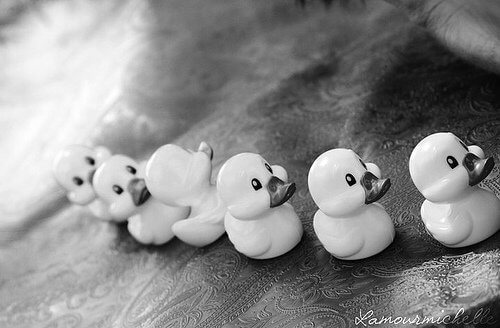Setting up a Budgeting Cash System
Since my post about using a cash system, I have had several comments and questions from those wanting to know more about how we determine our budget and establish our cash system. I’ll try to answer the questions and comments that I think will be most helpful for you! This is a big topic, so I think that I will take 2-3 weeks to answer the questions as thoroughly as I can.
I’d be interested in how you figure out what to allocate to each envelope. I tend to “collect” financial (and other self-help) information without implementing it. My biggest hurdle is figuring out what is reasonable for each rather than just identifying what we are spending on each.
MomOnTheGo
I suppose there are many ways that you could decide on how much to allocate to each area of the budget, but for us, we use a three step approach.
The first step for us is to look at the big picture of our entire budget. We begin this by writing down our take-home income, and then our tithe and giving. Next we list all of our mandatory bills- mortgage/rent, phone/internet, electricity, gas, car insurance, health/life insurance, gas, etc.). This forms the framework of our budget.
From here, we look at how much is left and then start to allot the rest of our money to categories such as grocery (for us this includes toiletries and household, like cleaning supplies), clothing, recreation/entertainment, books and music, miscellaneous, etc. We begin to play with the numbers and see how it will all work together. If we have only $700 left after all the basics are paid, then these budgets are formed out of that remaining $700- there is no other option. If the numbers don’t work, then the budgets get smaller, and we add it up again.
Also, everyone may do this a little bit differently, but for us, we prefer to set a savings amount before we start to divvy up the rest of our money into categories. Most financial teachers will tell you that you need to set aside your savings first, and we wholeheartedly agree. When we make occasional adjustments to our budget categories, we rarely alter our savings, because we consider that to be a non-negotiable. No matter how much you are living on, it is wise to find even a small amount that you can set aside before you spend anything else, so that you are not continually running a $0.00 balance at the end of each pay period, and it helps to deal with emergencies and to get out of the cycle of living from paycheck to paycheck.
The next step is to determine how much we are already spending in a given category.
Although this shouldn’t be the determining factor in establishing a budget, it can give you a good starting place for determining the amount that may be appropriate. Most likely, if you have not been
budgeting up to this point, you will want to try to set your budget for less than you have been spending. It is easy to spend more than you need when you are not deliberately working within a budget.
The third step for us would be to analyze that amount and decide whether we feel that is actually the amount that we wish to spend, or whether we think that we could actually lower it a bit if we
were to be disciplined about it.
For instance, given total freedom with my grocery/household/toiletries budget, I think that I could easily spend around $125 per week, likely more than that. But, we don’t think that $500 would be a reasonable
monthly allowance for our groceries. Instead we have currently set it at $360 a month, or $90 a week (keep in mind that it is my priority to buy high quality and organic foods and natural toiletries and cleaning supplies, and that I am Canadian- the food prices here are significantly higher than in the US, so your grocery budget may look very different from mine), and our goal is to find ways to continue to get better quality food within that budget, and to also find ways to lower it at the same time.
On a side note, I should add that I do not use very many coupons. This is not due to ignorance or lack of trying, but rather to the realities of where I live (coupons are not done much in Canada) and the types of items that I purchase. Coupons simply do not generally work out well for me, and it can often be more of a waste of my time in trying to find them and use them than it is worth. That said, I still use them when I can, I think they are fantastic for some people, and I am amazed when I see the reports of those who are able to use them! For those like me, I will soon be writing a post (or a series of posts) on how I purchase high quality items on a well-managed budget (which is significantly lower than many Canadian families we know- even those on a budget)- so stay tuned! But back to the topic at hand…
Now that our budget is in place, when payday comes, my husband simply pulls up the file on the computer (we use an excel spreadsheet to manage our budget- this is a wonderful, simple tool) and determines the amount of cash that he needs to withdraw for that pay period, and then puts the correct amounts of cash into our respective envelope systems.
Next time I will answer more cash system and budgeting questions, such as using a cash system with a fluctuating or commission based income, the cash system for the holidays, and practicalities of the system (what to use, where to get it, carrying around cash, etc.). If you have any other questions or comments about how we do our budgeting and use our cash system, please email me or leave a comment! I would love to answer your question!
As promised, here is the second part of setting up a cash system. If you missed the first post last week, you can check it out here.
I’ve been discussing what works for my husband and I as we set our budget and implement a cash system. Last time I discussed how we establish our budget amounts and add cash to our envelope system. This time I will answer a few more questions and concerns that were brought up.
I’m a big fan of the cash system. We did that when my husband had a regular salary. Now that his work is commission based we never know what his next check will look like, so putting together a new budget has been a nightmare.
Marie
Since my husband is in sales and marketing, and has previously worked on a strictly commission basis (although he currently works on salary plus commission, which is a little easier for budgeting), we have some experience in this area.
I think that there are two major strategies that need to be employed to make the cash system work in this situation. The first is that you need to have a savings buffer. The amount would be up to you, based upon your budget and needs, but I would seek to have at least 1 months living expenses saved up and always in your bank account as a buffer, so that if things are lean or you don’t receive the larger portion of the commission until the second half of the month, you have something to use without resorting to using credit.
We are actually currently test driving a budgeting software program called You Need A Budget (YNAB), which we are planning to review in a couple of weeks, once we get a feel for how it works. This program is based on the idea of spending only cash that you have, based on your previous months salary. So in the beginning, you work to save up one months wages, and once you get to this point, you then live off of your previous month’s cash. So, right now you would be spending the money that was brought home in October, while saving November’s cash for use in December.
Friends of ours run their own web design business, and are currently using this system in order to more carefully budget their ever-fluctuating income. They are finding it relieves so much stress to live on what they know they made last month, rather than what they might make this month. Anyways, stay tuned for the YNAB review, but take a look at the site in the meantime.
The second major thing that I would take into account in creating a budget and cash system is that you need to set up your budget based on a worst case scenario. It doesn’t work to budget based on a middle-of-the-road estimate of what you will likely make, because when you hit a month that falls short of that middle ground, your budget will begin to sink.
In my husband’s previous job, although he was payed on commission, there was a minimum guarantee, which meant that even in lean months, they would still guarantee us a basic level of pay. Not everyone has a guarantee, but perhaps you know what would generally be the lowest paycheck that you would expect. Base your budget off of this, and allocate your cash accordingly.
If you can train yourself to budget for this situation, then when it happens, you will not go under. And whenever your commission is higher than this amount, you can top up your cash system where the money is needed, or add extra to your savings.
I’m a big fan of Dave Ramsey, but I’m a little surprised to see him
hawking $19.95 envelopes! While they’re supercute and may be the push
someone needs to go all-cash, it somehow seems against his “gazelle
intense” approach to getting debt free.SAHMmy Says
I agree! We didn’t purchase these “designer” envelopes until after we were out of debt the first time (which we almost are again- praise God!), because we thought it was way too much money to spend.
When we had no money, and were going hard on our debt, we used either plain old ziploc baggies, or plain old white envelopes from the dollar store. It wasn’t fancy, it was occasionally embarrassing, but it did the job and it was cheap!
He also sells a cheaper version, without the fancy leather-look cover. It has the same envelope system inside, but has a laminated cardboard cover instead, so it is not as durable.
Are you ever concerned about carrying around so much cash? I leave most
of our envelopes at home and only carry the “bare necessities” our gas,
grocery and misc. fund envelopes. What do you do?Amy W
Good question! First of all, we only keep two weeks worth of our budget in the envelopes at one time, rather than a full month’s, so that helps to keep the overall cash amount a bit lower.
Second, we each have an envelope system, so the money is split between the two of us. I keep all of the food/household, the clothing, and half of the recreation, books and music and miscellaneous. My husband keeps all of the gas, and the other half of the categories above. Our tithe is kept at home until Sundays, our rent until the landlord’s come to pick it up and our savings is left in the bank account and then transferred to where it needs to go. Our bills are paid online from the account that my husband is paid into.
So, in reality, I never have much more than about $300 in my wallet, at the very beginning of the budget period. Is that enough money to be worried about? Sure, but I have often had that much in my wallet before I started using the cash sytem, for various reasons. And if my credit card were to be stolen, it could be racked up that high before I even noticed that it was gone.
It does make me that much more cautious with my wallet, knowing the cash that is in it (this is a good thing!). But I think that if this worries you, then use a more simple system, such as baggies or individual envelopes, and do as Amy mentioned, leaving most of the cash at home. When we first used the system, I used to only bring with me the envelopes that I intended to spend out of so I wasn’t temped to spend extra money anywhere!
I hope that this series has been helpful to those of you considering using a cash system! It has worked incredibly well for our family, and brought a greater level of financial stewardship, and ultimately, peace.




Thanks for given such a great explanation. I am not yet on a cash only basis – but think it is something to strive for.
Stacy
Sounds a lot like Dave Ramsey! He has definitely inspired us to live on a cash only basis. Do you know how many people look at me weird when I say we don’t own a credit card? It has helped us incredibly and is the only way I have been able to stay on our monthly grocery budget. Thanks for the post!